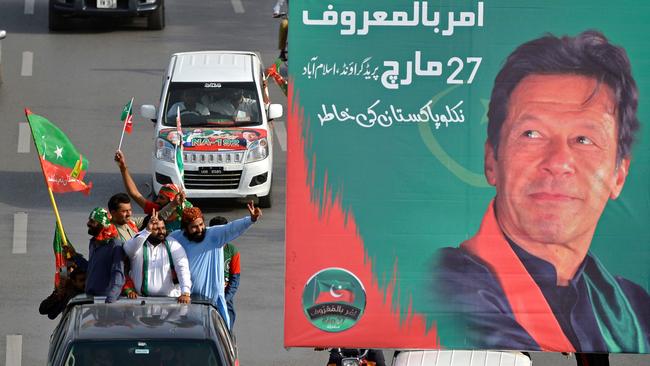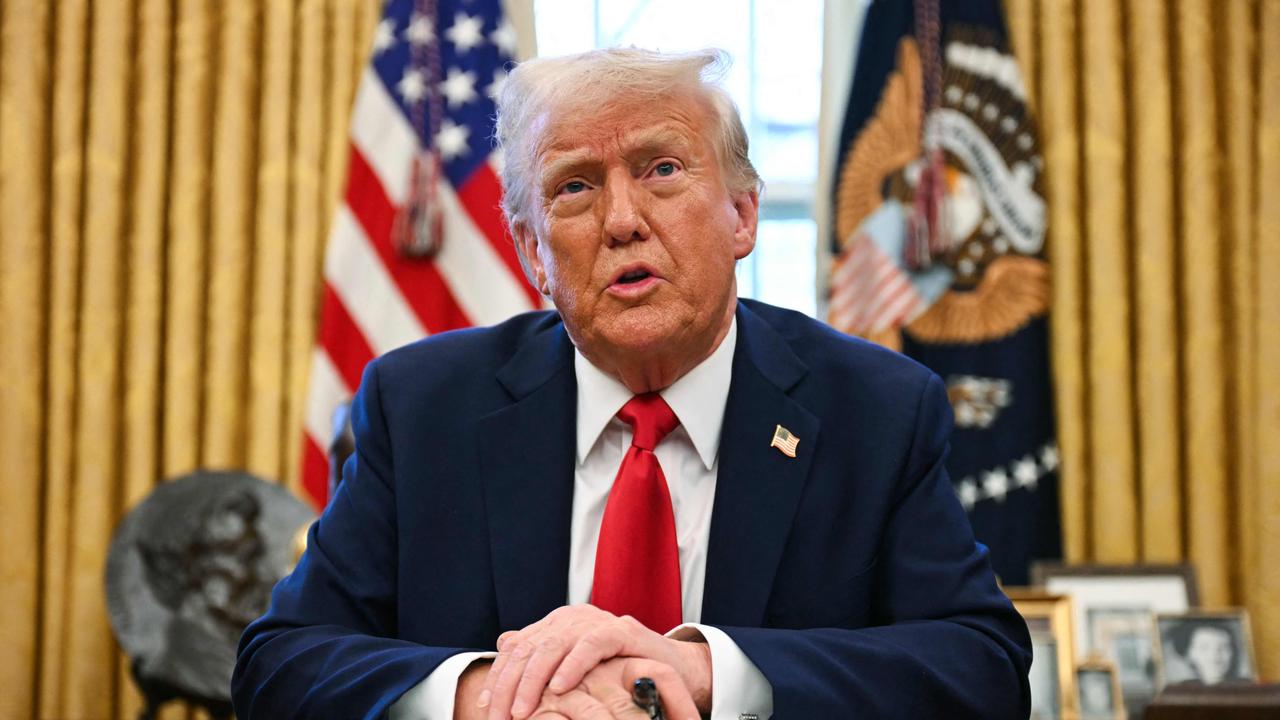Pakistan opposition says it has enough support to oust PM Khan
The leader, who has vowed not to resign, is facing a no-confidence vote in parliament.

The political opposition in Pakistan said it had enough votes to oust Prime Minister Imran Khan, after convincing several small parties allied with the government to switch sides.
Mr Khan remains Prime Minister for now, but faces a no-confidence vote in parliament, where he has ruled with a thin majority. The opposition said late on Wednesday that it had more than the 172 votes needed to win, after convincing a key party, the Muttahida Qaumi Movement, to join it.
Mr Khan, a 69-year-old former cricket star, has served 3½ years of a five-year term. No prime minister has ever completed a five-year term in Pakistan, where democracy remains fragile.
Mr Khan, like previous prime ministers, is in a tenuous position after clashing with Pakistan’s powerful military, government officials and opposition politicians said. That opened the way for the opposition to mount a challenge. The military denies interfering in politics.
Faisal Javed Khan, a senator from Mr Khan’s Pakistan Tehreek-e-Insaf party, said the Prime Minister wouldn’t quit and predicted he would yet win. “Voting has yet to take place,” Senator Khan said. “We’ll see what happens when the voting happens.”
The Prime Minister warned that politicians would need to get past his supporters, who he expected to rally outside parliament, on the day of the vote. The opposition called for Mr Khan to resign, rather than wait for the vote, expected in the next few days. Mr Khan’s popularity has taken a beating, especially from high inflation, a recent poll by Gallup Pakistan showed.
Shehbaz Sharif, who the opposition says would be the new prime minister, said it was a historic day for Pakistan. He is the younger brother of three-time prime minister Nawaz Sharif, whose last term ended in 2017, after he also fell out with the military.
Nawaz Sharif was later convicted of corruption in what he says was a politically motivated case. He was allowed to go to London for medical treatment, where he continues to live in exile. The conviction would prevent him from becoming prime minister.
Mr Khan claims that the opposition is backed by foreign powers, although he hasn’t named the country or countries involved. “This conspiracy has come from abroad,” he said on Wednesday, speaking before the opposition announcement.
Mr Khan’s politics have become increasingly anti-Western. Aides say he is also upset that US President Joe Biden hasn’t called him since assuming office. He has reached out to China and Russia.
The opposition says that the purported foreign intervention is concocted. “This foreign conspiracies stuff is an old cliche,” said Muhammad Akhtar Mengal, leader of a party from the western province of Balochistan, which was previously allied to Mr Khan but has now sided with the opposition. “It doesn’t sell any more. Try something new.”
Pakistan has been an American ally since soon after its birth as a country in 1947, siding with the US through the Cold War, and joining the war on terror after the September 11, 2001, attacks. However, it has been an uneasy alliance, especially since 2001, when Washington accused Pakistan of secretly supporting the Taliban while formally being an American partner.
Washington says it is closely following developments in Pakistan and supports the constitutional process in the country.
Mr Khan’s anti-Western views contributed to his falling out with the military, which is concerned about the continued flow of US military equipment, according to Mr Khan’s aides. The two sides were also at odds over key appointments and the performance of his government.
Opposition members say they were moving to oust Mr Khan now partly because they feared he would appoint a general later this year as army chief who would help him win the 2023 election.
The Wall Street Journal


